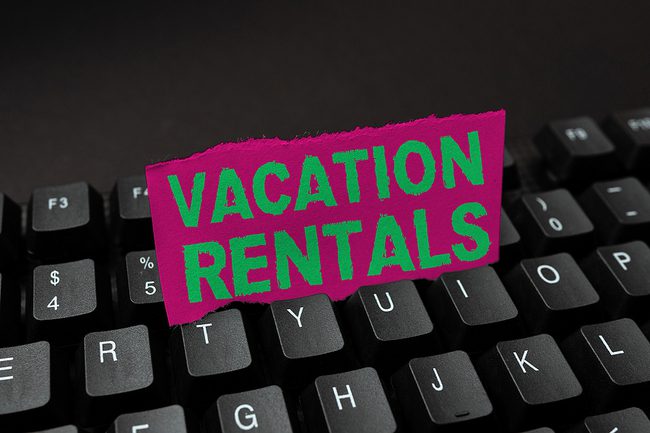The Vacation Rental Market: Four Risks to Know & Prepare For

After two decades of vacation rental growth spurred by technology, it may be fair to say rental property exposures are all grown up. Insurers are no longer shunning the market, technology is no longer seen as a mystery, and even more governments are embracing the economic benefits of vacation rentals.
Though, admittedly, there are almost innumerable ways to divide rental property exposures and risks, we are going to look at four basic areas of risk: (1) Insurance and suitable coverage; (2) Regulatory and government rules (especially taxation and zoning); (3) Personal liability; and (4) Bad actors.
The final category, Bad Actors, usually gets the most press: though, statistically, it may technically present the lowest risk. On the other hand, publicity surrounding crime at vacation rentals—even if rare—can and does drive government policy. A recent mass shooting in Pittsburgh at a vacation rental has brought unwanted, and very possibly undeserved, attention to Airbnb.
Now, let’s take a look at our four categories to help guide a less risky, more positive vacation rental business.
1. Insurance and suitable coverage
Early in the history of vacation rentals, use of homeowners insurance was generally disallowed, if the claim involved a “commercial use.” Now that the domestic vacation rental market generates more than $10 billion a year, the insurance industry has changed course. There are now several major companies offering well-regarded vacation rental coverage.
Anyone renting a property (even their primary or secondary home) should absolutely have a specialized vacation rental policy. It’s unwise to count on some guarantees from major host sites.
2. Regulatory and government rules
Many past zoning rules failed to recognize the use of a seasonal occupancy. Interestingly, especially in more rural areas, there’s also a conflict in which jurisdictions are responsible for their regulation: this uncertainty often blindsides rental owners. Not having a response from local building officials doesn’t mean there’s not a problem: an insurance claim might be denied for failing to have done due diligence. Not being registered for a business license, for example, or not having met state building, health and occupancy rules, or even fire requirements. Record communication with local officials. Many times, governments essentially waive requirements—even incorrectly—and a written record of what department or official was contacted can prove “waiver.”
3. Personal liability
Many vacation rentals assume that certain corporations will protect a person from being held financially responsible apart from “business” assets. Instead, depending on the state’s laws, a small “closely held” corporation may actually be no shield from personal liability at all. Partnerships (one of the more common ways vacation rentals are owned) may not only provide no personal immunity but may even create liability between any partners. The specific legal scenarios for the best form of legal ownership is beyond the scope of any article: it requires sound legal advice. It’s also necessary, as a vacation rental business ages, to review prior legal decisions: probably, at least annually.
When it comes to having adequate insurance, one weak link is often on ‘invitees’ to the property (guests of renters). Regular checklists and records will help show if ‘reasonably prudent’ safety has been used on site.
Another area of liability often strikes when the property owner cuts corners on safety features, from security cameras to adequate lighting. It’s virtually impossible to avoid liability for unknown hazards in a rental. Many times, this has been not only the parties to the contract, but the invitees of the contracted guests. A contract that clearly addresses duties and prohibitions (e.g., limiting parties or guests) will provide some protection. Code violations, on the other hand, are almost impossible to defend against.
4. Bad Actors
Courts usually won’t find owners liable for criminal actions of third-parties. However, one consistent liability is failing to maintain minimum security, or ignoring known incidents. An owner who knew of risks and failed to simply warn has been held liable for third-party injuries. This limit on risk doesn’t mean vacation rental owners don’t run the risk of every business: bad reviews. Policing your own social media can save your business.
Because bad press dogs vacation rentals, being a good neighbor safeguards against neighbors making calls to the police or city hall. Speaking of dogs, learning public nuisance laws (such as noise abatement) will also help you explain to renters what is expected of them, and consequences for breaking posted rules. Ideally, this research will prevent investing in a risky location to begin with. Check crime statistics for the neighborhood. If an owner continually waives or doesn’t enforce their own rules, this pattern creates risk: including having their license (if required) revoked.
Conclusion: The Elephant In the Home
You’ve certainly also noticed there was no mention of The Elephant of all risk: the pandemic. The omission was intentional, to help make a point. The “real” risk culprit is often obvious only with 20/20 hindsight. While courts have universally reacquainted us with the implications of a “force majeure” and Acts of G-d, for voiding contracts, few of us anticipated the risks of a pandemic impacting travel and rentals.
The greatest “risks of risk,” to paraphrase FDR, is in not knowing and not preparing.
If you own a vacation rental, be sure to speak with the personal insurance team at BNC Insurance. We’re here to help!







